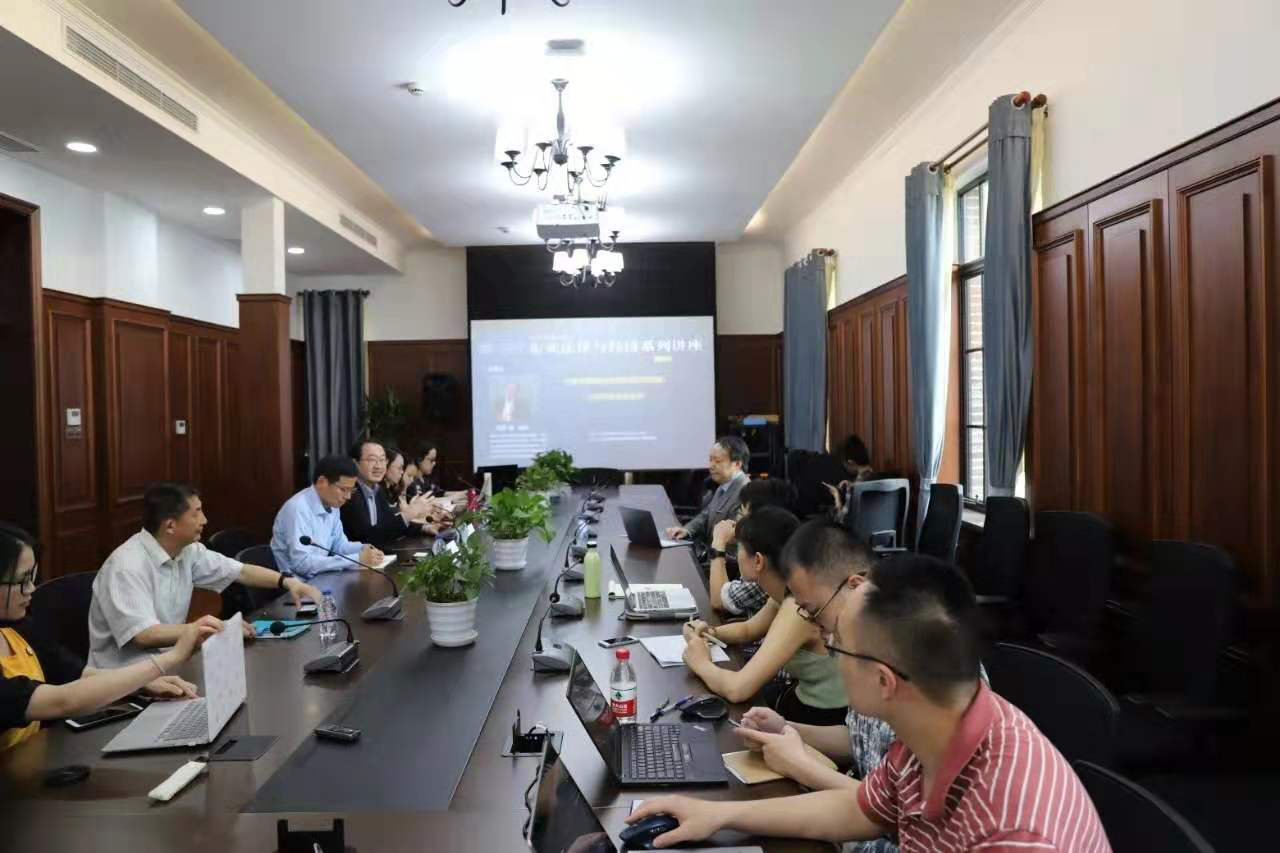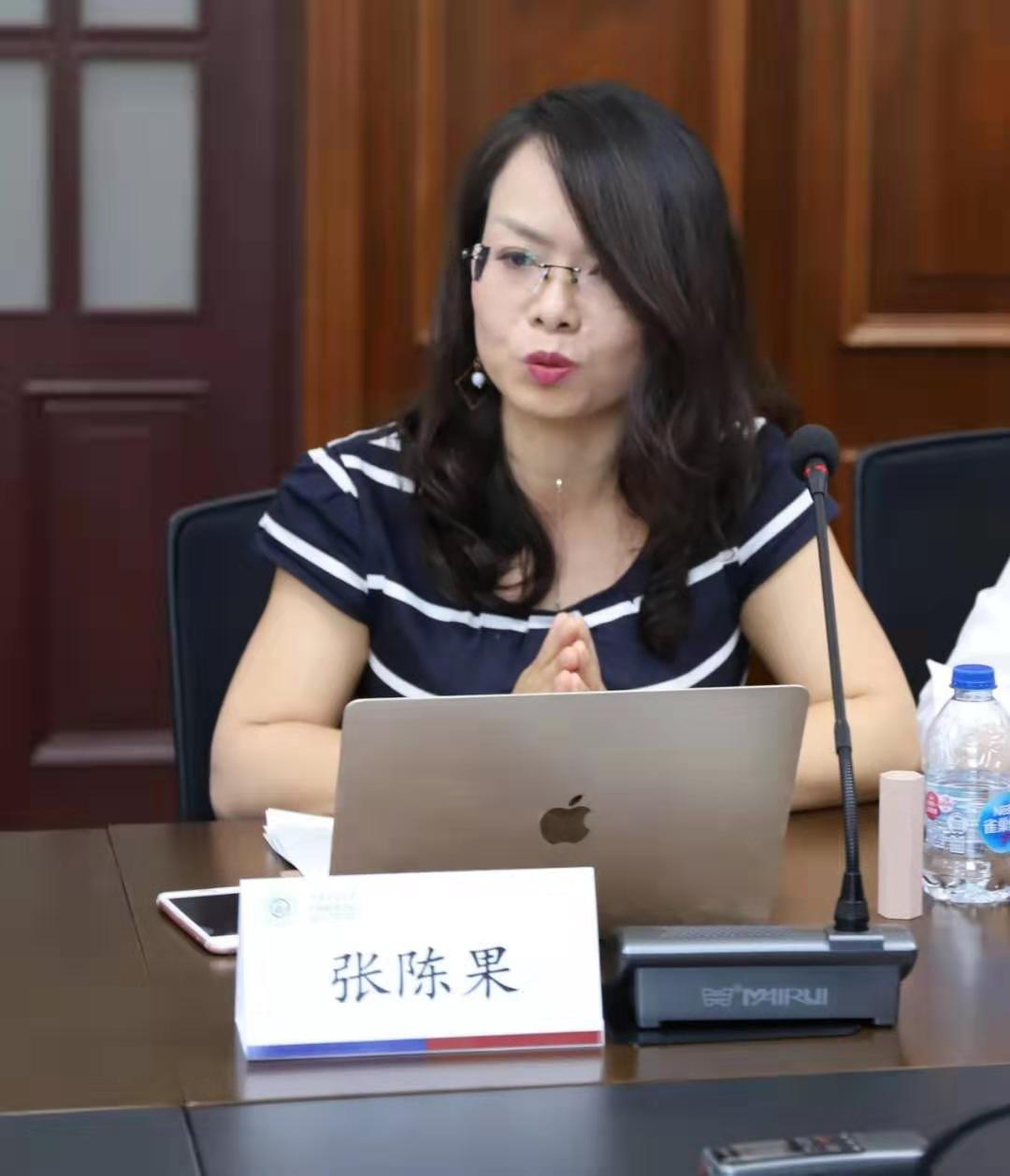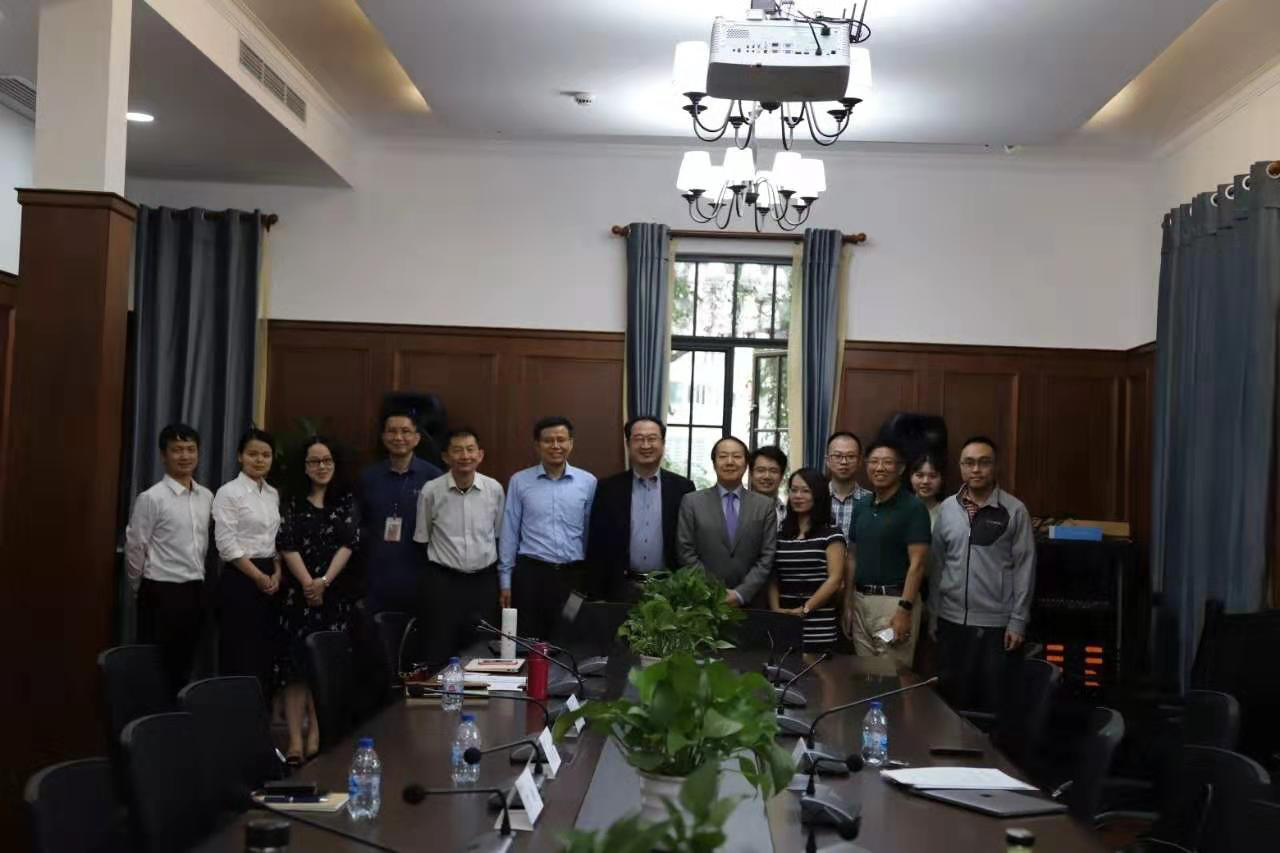On June 11, the fourth lecture of the "East Asian Law and Economy Series" of Shanghai Jiaotong University, "The Dispute Experience and Countermeasures of Japanese Citizens: Taking Recent Changes as an Example", was held at the Japan Research Center of Jiaotong University. The lecturer, Takahashi Yu, is a professor of law research at Kobe University. Professor Ji Weidong, the chair of the lecture and director of the daily research center of Jiaotong University, welcomed and thanked Professor Gaoqiao. Zhang Chenguo, an associate professor of Kaiyuan Law School of Shanghai Jiaotong University, was invited as the reviewer of the lecture.

Professor Takahashi's lecture aims to introduce the background, methods and results of the social survey project "National Survey on Disputes among Japanese Citizens" he presided over. From the background, compared with European and American countries, the litigation rate of Japan is relatively low, and the first research mainly analyzes the formation of this phenomenon from the perspective of cultural theory and institutional theory. Professor Takahashi's survey intends to explore other factors, such as the country's economic situation and the public's perception of media reports, in order to give a new explanation to the low litigation rate in Japan.

From the perspective of survey methods, the survey is divided into two parts, the first part was implemented in 2006, and the second part was implemented in 2018. The survey asked the interviewees and their families how many disputes they had experienced in the past five years, the most serious circumstances of the disputes they had experienced, and how to deal with them through door-to-door interviews and questionnaires. By comparing the results of the two surveys, we can observe the dispute experience of Japanese people in the past 12 years and its countermeasures.
According to the survey results, the proportion of respondents with dispute experience or who felt that they had been involved in disputes increased sharply, and the number of dispute cases per capita also increased from 2.4 in 2006 to 4. According to the demographic results, low-income people are more likely to be involved in disputes than 12 years ago, which also reflects the impact of economic conditions on dispute experience and dispute perception. In addition, there are many types of dispute cases, including disputes related to workplace and labor relations, and disputes with neighbors. It is worth noting that, although the amount of fraud cases involved in 2018 is larger, the respondents' perception of disputes in such cases is obviously not as strong as that in 2006, because the media reported a large number of fraud cases in 2005-2006, leaving a deep impression on the public. This result also reflects the important role played by the mass media in the formation of dispute perception as described above. As far as the measures taken by Japanese people to deal with disputes are concerned, the survey results show that the utilization rate of police and insurance companies has declined. At the same time, due to the increase in the number of lawyers, the utilization rate of legal professional institutions has improved, but the satisfaction with the results of the settlement has shown a downward trend. In addition, the number of litigation cases in 2018 was basically the same as 12 years ago, but the number of mediation cases decreased sharply; At the same time, the proportion of cases that can be solved by money has decreased, and the number of respondents who can solve disputes by directly negotiating with the other party has also decreased significantly.
Finally, Professor Takahashi made a prospect for the future research. First, how to deal with the rising tendency of Japanese society to recognize disputes. Second, since the investigation results point to the enhancement of dispute perception, the reason why the number of lawsuits and mediation cases has not changed much is worth discussing. Third, the emergence of new phenomena such as online retailing has enabled many disputes to be quickly resolved before upgrading. The correlation between this phenomenon and traditional dispute types needs further data collection and analysis.

In the evaluation and question and answer session after the speech, Professor Zhang Chenguo, the reviewer, first pointed out that the Japanese society's practice of avoiding litigation and lightening the burden on the court could be very enlightening for countries such as Germany and the United Kingdom, which have high litigation rates and rarely resort to mediation. At the same time, Professor Takahashi took the economic situation, the influence of mass media and other quantifiable factors as independent variables, the number of disputes and the proportion and channels of citizens to resolve disputes as dependent variables, clarified the correlation through empirical methods, and thus described and analyzed the social changes in Japan over the past decade. Professor Zhang and the participants also asked Professor Takahashi whether there was a selective bias in the sample of survey respondents, whether there was a certain bias between dispute perception and the number of lawsuits, whether the Japanese people would use public opinion to create more favorable litigation results, and whether the network of human relations would reduce the number of lawsuits. The atmosphere of on-site discussion was very warm.
